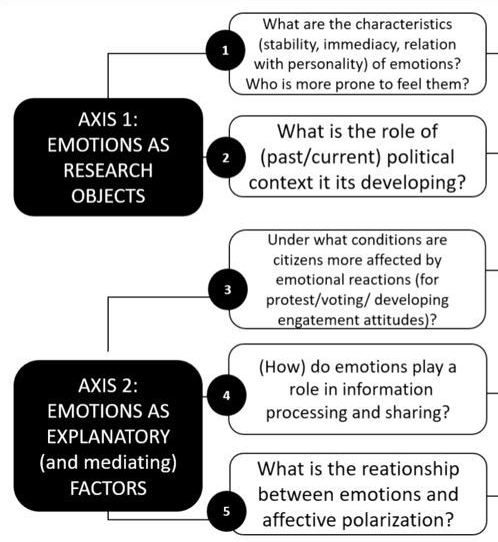
Empol

EMPOL is a Spanish funded research project (PID2020-113030RB-100), which was granted 94,501€, of which I am the princial investigator, leading a team of 20 young and seasoned researchers from September 2021 until June 2025. EMPOL analyzes the causes and political consequences of emotions such as anger, fear, sadness and disgust.

The project has two main axes, considering emotions as either dependent or independent variables. The first axis aims to conceptualize and measure politically relevant emotions, describing their characteristics and individual explanatory factors, such as sociodemographic or psychological traits, and to analyze the role of the political context in the development of these emotions. By addressing these issues, EMPOL seeks to improve emotional measures in surveys, differentiate them from other individual variables like personality or values, and overcome challenges in connecting political context and emotions, such as endogeneity and ecological fallacy. The second axis considers emotions as independent variables influencing various political behaviors, including voting, protest, participation-related attitudes, information processing, and affective polarization. EMPOL aims to use appropriate measures, models, and data to estimate the effect of emotions, identify their heterogeneous effects, and highlight less-known objects of study regarding the impact of emotions. The project challenges the traditional role of emotions as mediators between political stimuli and behavior, proposing better measures, data (panel), and causal models, and including controls like personality and identities. This approach will also be applied to the study of information processing, particularly fake news, and affective polarization in Spain.
To carry out these objectives, EMPOL has collected data from three waves of a panel survey. Among the project's contributions are proposals for improving the measurement of emotions, identifying them as distinct from other psychological factors, determining their stability and exogeneity when included as explanatory factors for other phenomena of political behavior, identifying the effect of context on emotions, improving causal models that include them as explanations, understanding their role in information processing, and clarifying their impact on the development of affective polarization.
The project has resulted in eleven first-level publications to date, along with various dissemination actions, including 40 presentations at different conferences, and the training of its members in different technical skills thought targeted actions. In its mid-term evaluation, it was rated "excellent" by the State Research Agency.